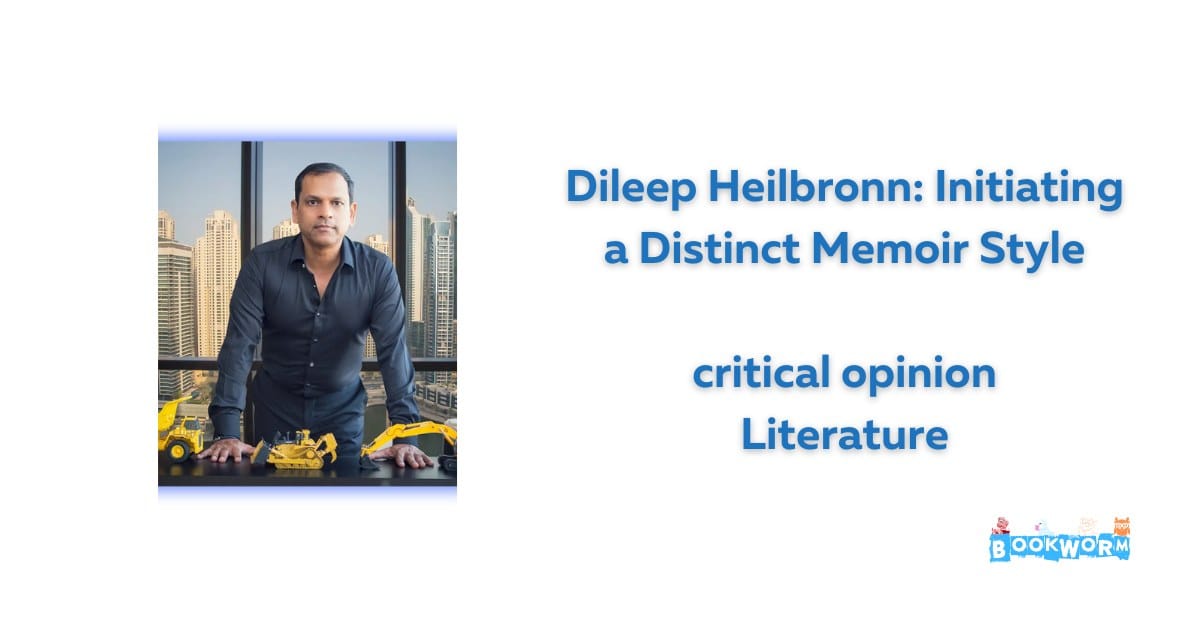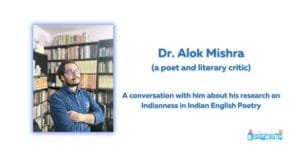In the age of curated self-image and manufactured memoirs, where many life stories read like brand manifestos rather than reflections of genuine experience, Dileep Heilbronn has quietly ushered in a refreshing and possibly transformative shift in the genre of autobiographical writing. His book, The Malabari Who Loved His Ferrari, is not merely a recollection of professional triumphs or a chronicle of material success. It is a textured, unembellished account of a life lived in totality—replete with personal failures, emotional complexities, evolving relationships, and a persistent connection to one’s roots. The honesty of his prose, his refusal to masquerade as a flawless figurehead of success, and the profound simplicity with which he writes all suggest that Dileep Heilbronn may well have started a new and long-needed trend in contemporary memoir writing.
What makes Dileep’s memoir stand apart is the absence of artifice. There is no overt narrative manipulation or an attempt to recast missteps as misunderstood genius. Instead, what we encounter is a voice that is patient and unpretentious, willing to speak about pain without seeking pity, and committed to portraying victories not as destiny but as the outcome of grit, humility, and sustained effort. Unlike many celebrity-authored life accounts that tend to gloss over struggle or romanticise adversity, Dileep’s approach is to humanise the journey. He does not selectively highlight only the glamorous chapters. He provides context, emotional nuance, and self-reflection to even the smallest of incidents, making the reader a trusted witness to his evolution.
At the centre of his narrative is the persona of a man who is driven yet grounded. Dileep does not construct himself as a larger-than-life figure, but rather as an ordinary boy from Madras who happened to dream big and persist against the odds. He recounts, with clarity and a deep sense of memory, the early days marked by limited means and enormous ambition. His departure for Dubai with a meagre amount of money, a suitcase of belongings, and a heart full of hope is not couched in melodrama. Instead, it is told with such restraint and sincerity that the moment becomes emblematic of quiet courage. That ability to present pivotal moments without excessive sentimentality is one of Dileep’s greatest strengths as a memoirist. It lends his work authenticity—a quality often sacrificed in favour of entertainment.
Dileep’s style of writing is equally notable. His language is accessible yet evocative. He does not overwhelm the reader with rhetorical flourishes or literary pretensions. Instead, his words are functional, flowing with a conversational rhythm that reflects his natural speaking voice. This unfiltered tone allows for an intimate reading experience, as though the reader is listening to him in person, across a dining table or during an evening walk. It is through this style that the emotional texture of his experiences is conveyed with subtlety. Whether he is writing about the pride of watching his son Gautam choose a meaningful path over a glamorous one, or the subdued anguish of a long-lost friend reappearing under challenging circumstances, the writing always feels true to life. It neither exaggerates nor trivialises.
His approach to people and relationships, as captured in his writing, also deserves critical attention. Unlike conventional memoirs that centre the author as the sole protagonist and selectively mention others in passing, Dileep’s narrative consistently affirms the importance of friends, mentors, rivals, and even strangers in shaping his journey. He names them, remembers them, honours their influence, and mourns their absence. This relational awareness is not performative. It appears deeply embedded in his worldview. The humility with which he writes about reconnecting with old roommates, school friends, and former employees stands in stark contrast to the tendency in many memoirs to spotlight only connections that signal power or prestige. Dileep writes about people not as props in his narrative but as co-authors of his life.
Interested? Get a copy of this memoir from Amazon now – click here.
Nowhere is this emotional integrity more evident than in his account of his former wife. Rather than erase the discomforts and fractures of a past marriage, Dileep recounts receiving a handwritten letter from her years after their divorce. The letter is not exploited for drama. It is treated as a deeply personal gesture that brought closure and clarity. His response—not in words but through actions that protect the dignity of their shared children and honour the emotional legacy of their partnership—is emblematic of the emotional maturity that pervades his memoir. In choosing to recount such episodes, Dileep not only displays personal courage but also signals a shift in how men, particularly South Asian men, can narrate their emotional lives in public without succumbing to stereotypical notions of masculinity or shame.
Another distinctive aspect of Dileep’s writing lies in his treatment of material success. While the title of his book references a luxury car, and parts of the memoir describe villas and business milestones, these details are never framed as symbols of self-worth. Instead, they are woven into the narrative as markers of gratitude and service. His new home in Emirates Hills is not described in terms of market value or opulence alone. It is understood as a gift to his family, a memory-house, a physical manifestation of long years of labour. This framing challenges the dominant trend in memoirs where affluence is often used as evidence of validation. Dileep resists this. For him, value lies in relationships, dignity, and personal peace. The Ferrari is not a prop—it is a metaphor for aspiration that remains rooted.
His incorporation of photographs within the book also speaks to his desire to build transparency and trust with the reader. These are not curated glamour shots; they are lived-in moments, images that capture vulnerability, achievement, companionship, and a sense of nostalgia. The decision to include them enables the narrative to extend beyond words and into the visual domain, creating a more comprehensive emotional experience. In doing so, Dileep not only documents his life but invites the reader to participate in it, to witness its shifts and constancies, its seasons and stillnesses.
Perhaps the most radical contribution Dileep makes to the genre is his willingness to end the book not with finality but with continuity. He does not claim to have all the answers. He is not interested in being remembered as a man who mastered life. Instead, he writes with the awareness that life is ongoing, and that the real measure of success is the ability to keep learning, to remain open to new relationships, and to give back meaningfully. His commitment to donate the book’s proceeds to charity is not framed as a philanthropic marketing gesture but as an organic extension of his values. It completes the ethical circle of his narrative—live fully, reflect deeply, give generously.
Dileep Heilbronn’s memoir, and more importantly, his voice as an author, sets a precedent for how stories of success can be told without veiling vulnerability. In a literary marketplace crowded with self-aggrandisement and rhetorical gloss, his directness is both rare and necessary. He does not present life as a linear graph of ascent, but as a mosaic of people, decisions, memories, regrets, and small, hard-earned joys. It is this kind of storytelling that we need more of—not just to inspire, but to educate, to humanise, and to remind us that at the core of every remarkable journey is an ordinary human heart choosing courage over comfort, again and again.
By embracing emotional complexity and refusing to sanitise his past, Dileep Heilbronn has redefined what it means to write a memoir in today’s world. He shows that authenticity is not a trend, but a commitment to truth, and that the most powerful stories are often those told not with bravado, but with bare, honest grace. His work might very well inspire future memoirists to shed performance and pick up integrity—to write not from a pedestal, but from the ground they have walked on.
Ranjeet for BookWorm Reviews
..




